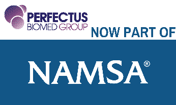The World Health Organisation (WHO) have published a list of pathogens which are likely to pose the greatest risk to human health. This is due to their increasing resistance to antibiotics.
The list includes 12 families of bacteria and will be used to promote research and development (R&D) into new antibiotics. As a result, an attempt will be made to tackle the increasing global resistance to antimicrobial medicines.
Gram-negative bacteria pose the greatest risk to human health. This type of bacteria have the ability to resist treatment that uses multiple antibiotics. They then also pass on this genetic material that allows other bacteria to also become drug-resistant.
The WHO split the list into three groups. The groups are reflective of the urgency for new antibiotics; critical, high and medium priority. The critical category includes bacteria that are found in hospitals. This includes Acinetobacter and Pseudomonas. These types of bacteria can cause severe and deadly infections. The high/medium categories contain other drug-resistant bacteria, such as Salmonella. This type of bacteria is the cause of diseases such as food poisoning.
Criteria used to create the list
- How deadly is the infection caused by the bacteria
- Is treatment of the bacteria likely to require long hospital stays
- How frequently are the bacteria resistant to antibiotics
- How easily does the bacteria spread between animals and also people
- Are new antibiotics to treat the bacteria already in the R&D pipeline
- How many treatment options remain
The Government will use the list of antibiotic-resistant pathogens to create and implement new policies. Furthermore, these policies will allow research and development into new antibiotics to be promoted.
Therefore, Perfectus Biomed possess the below priority organisms, as listed by the WHO, in our culture collection:
|
Acinetobacter baumannii NCTC 13301 |
|
Pseudomonas aeruginosa NCTC 13437 |
|
Enterobacter cloacae NCTC 13464 |
|
Enterococcus faecium (VRE) ATCC 700221 |
|
Staphylococcus aureus NCTC 13142 |
|
Helicobacter pylori NCTC 13207 |
|
Campylobacter coli ATCC BAA-371 |
|
Salmonella enteritidis NCTC 13349 |
|
Neisseria gonorrhoeae NCTC 13480 |
|
Streptococcus pneumoniae ATCC BAA-343 |
|
Haemophilus influenzae NCTC 12699 |
|
Shigella sonnei NCTC 8219* |
To find out more, please click here.
